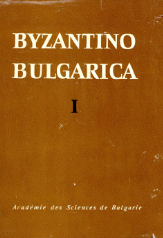
We kindly inform you that, as long as the subject affiliation of our 300.000+ articles is in progress, you might get unsufficient or no results on your third level or second level search. In this case, please broaden your search criteria.

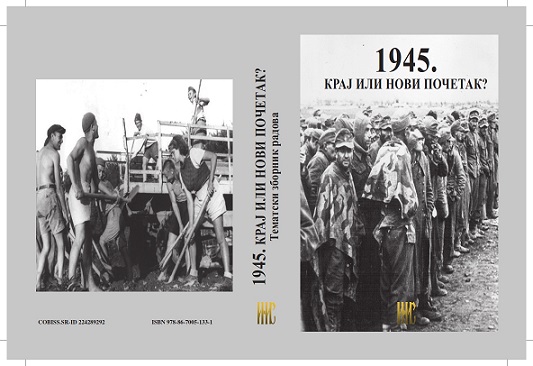
The duration and intensity of WWII in the territoiy of the Independent State of Croatia, the presence of occupation forces of the German Reich and the Kingdom of Italy, armed forces of the Independent State of Croatia, as well as the activities of the Yugoslav monarchists and communist-led partisans, caused direct clashes between the belligerent parties. This led to a number of casualties both among soldiers and civilians. Irreconcilable ideologies and military and political interests of the conflicting parties in the general and civil war increased the number of casualties. The communists reckoning with real or purported enemies alike in Yugoslavia during WWII and especially at its end and right after it, was massive and without mercy. Part of the radical and total reckoning of the Yugoslav communists with their enemies immediately after WWII was the order of the Interior Ministry of the Democratic Federal Yugoslavia of May 18, 1945 about removal of graves of "occupiers" and "enemies of the people" that targeted graves, tombstones of German, Italian and Hungarian armies, as well as those of the ustasha, chetniks and Slovenian home guards. The fact that the order was systematically implemented in the territory of the Independent State of Croatia is proven by surviving documents and testimonies of eyewitnesses, as well as by the state of the graveyards themselves. The graves of fallen partisans and victims of "Fascist terror" were protected by law, put in order and well maintained in Yugoslavia after WWII, whereas the graves of "enemy" soldiers and "collaborators" remained outside of the pale of the law. This remained so until the break-up of Yugoslavia.
More...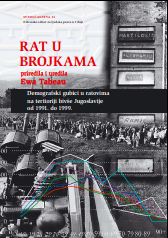
U izveštaju koji sledi a koji se bavi uzrocima ubistava i kretanja izbeglica na Kosovu u periodu od marta do juna 1999. godine, potvrdili smo i proširili rezultate koje smo izneli u analizi iz 2002. godine. Opisujemo revidiranu i proširenu analizu mogućeg kauzalnog odnosa između dejstava OVK /Oslobodilačke vojske Kosova/ ili NATO snaga i perioda tokom kojih su ubistva, odnosno kretanja izbeglica dostizala najvišu vrednost. Obrazlažemo zašto je naša shema obeležavanja bila namerno konzervativna, kako bi se na najbolji mogući način ispitale tvrdnje da su OVK ili NATO bili glavni uzrok ubistava i kretanja izbeglica. Kao što ćemo prikazati, uz minimalan broj verovatnih pretpostavki, naši zaključci biće još čvršći. Naš zaključak prikazuje da uključivanje kompleta podataka o nestancima, identifikaciji posmrtnih ostataka i migraciji ne menja bitno naše prethodne rezultate. Ovim izveštajem potvrđujemo naše zaključke iz 2002. godine: smatramo da podaci ne idu u prilog tvrdnjama da bi OVK ili NATO mogli biti značajan uzrok ubistava i migracija na Kosovu u periodu od marta do juna 1999. Godine.
More...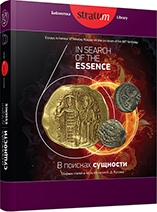
The article deals with the most popular among the warriors offensive melee facilities weapons, especially swords, medieval sabres, falchions and their components found in the northern part of the Dniester-Prut interfluvial area.The territory of the Northern Bukovina knows 11 swords. The above analysis of blade weapons made it possible to distinguish among them some types of XIIa, XVIа, XVII, and XX according to E. Okshott, dating to 14th—16th centuries. The proposed typology is not exhaustive and definitive, and perhaps further research and new finds will be able to clarify it more.The fragments of the sabre, as well as the saber guards, were found on the studied area. The latter refers to types I, II according to A. Kirpichnikov. The guards are dated by the analogies of the 11th—13th centuries. Among the weapons found in the investigated territory, there are also known two falchions, of cross-guard shape and pommel shape. The falchions are type 1 and 2 according to A. Nadolsky. They are dated by the middle of the 15th — the beginning of the 16th centuries.Thus, it is obvious that the local population from the investigated territory was quite sufficiently armed. Evolution of these weapons was mainstreamed with the general development of the military art in Europe. The territory of the Northern Bukovina in the 12th—16th century was involved into the pan-European political events. And the finds of the advanced weapons of that time serves as evidences to the fact.
More...
The solution of the problem of localization of the Khadzhibey castle on the territory of modern Odessa became possible due to the first geo-radar exploration in the area of its most probable existence. The work revealed at a depth of more than 2 m an anomaly that coincides in size and contours with the plans of the stone castle in Khadzhibey, known by cartographic materials of the 1780s. The castle was located opposite the modern houses no. 4—5 on Primorsky Boulevard. The depth of occurrence corresponds to the horizon of the surface of the Khadzhibey period, revealed by the expedition of A. O. Dobrolyubsky during excavations near the Vorontsov Palace in 1997.The castle existed at this place (almost unchanged) in the period from the 1420s to the 1790s. It was built in connection with the defensive initiatives of Witold or T. Buczacki. In 1593, the Turks attempted to reconstruct the castle. In 1765, the structure was slightly modernized — a coastal artillery battery was added from the north-east, coastal side. In 1789, it was incapacitated by blasting two mines. After 1794, it was disassembled to harvest building materials.
More...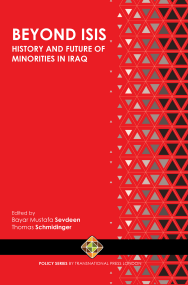
The Kakai, also called Yārsan or Ahl-e Haqq, follow a religion that emerged thousands of years ago. Their monotheist religion has four principles: Pāki, Rīsti, Nīsti, and Radā. Kakai speak a distinct language called ‘Macho’, a Gūrani Kurdish dialect, and are famous for agriculture and shepherding. They show a strong passion for playing music, because music is an essential part of their religion and rituals. Originally, Kakai believe in Doon-a-Doon (life after death), where a soul passes 1,000 Doon within 50,000 years, and continuously moves from one body to another until it reaches perfection. They also believe that God manifested himself in different souls, such as Ali (the first Shia Imam) and Shah Khoshin, before embodying himself in the form of Sultan Sahak, the founder of the Kakai religion. Kakai also believe that after 1001 transmigrations, the soul comes back to an everlasting home, and everything becomes part of God . In every period, someone had a sense of God, and each period was called the ‘period of Yār’.
More...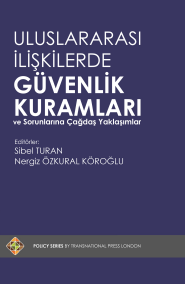
Çatışan taraflar için, hiç şüphe yok ki barışa karar vermek ya da çatışmayı sonlandırıp gerçek bir barış sağlamak son derece zorlu bir süreci de beraberinde getirecektir. Özellikle de yaşanan çatışma sürecinde şiddet dolu uzun yıllar varsa, yüz binlerce kayıp verilmişse ve bunlar toplumun hafızasına kazınmışsa. Böylesi bir çatışmada barışa varmak adına çok güçlü bir motivasyon şarttır çünkü barış ancak ve ancak tarafların bu yönde samimi bir niyet taşımaları sonucu mümkün olabilir. Diplomasi seçeneğine yönelmek, özel olarak müzakere seçeneğini kullanmak tarafların süreç üzerinde kontrol sahibi olduğu bir yöntemdir ve sonuç tarafların niyeti, sahip oldukları güç, mücadele verdikleri amaçlar ve uluslararası toplumun çatışmaya yönelik bakış açısı ile yakından ilgilidir. Barışı sağlamak adına çatışan tarafların basitçe al ver mantığına odaklandığı bir çözüm sürecinin işlemesi yeterli olmayacaktır.
More...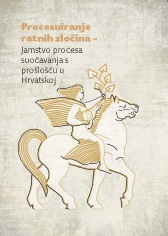
U procesu europskih integracija pred pravosuđe je postavljen niz zadataka vezan uz neistražene ratne zločine . Nakon izbora 2000., okretanja Republike Hrvatske prema Europskoj uniji i potpisivanja Sporazuma o stabilizaciji i pridruživanju u listopadu 2001. godine, blagotvoran utjecaj procesa pregovora na kvalitetniji rad institucija i nagovještaji njihove reforme, nije izostao. No, olako dana predizborna obećanja o raskidu s nasljeđem političkih intervencija u rad pravosuđa i izgradnji institucija pravne države, teško su se pretvarala u konkretne mjere. Kontekst za učinkovitije procesuiranje ratnih zločina stvaran je međudjelovanjem novoizabrane socijaldemokratsko-liberalne koalicijske vlasti te politike uvjetovanja Europske unije poticanjem suradnje s Međunarodnim kaznenim sudom za ratne zločine u bivšoj Jugoslaviji (u nastavku MKSJ) i intenziviranje postupaka od predistražnih radnji do suđenja u RH. Nakon manjkavih i etnički pristranih istraga ratnih zločina u devedesetima, pravosuđe je napravilo određene iskorake. To se primjerice očitovalo okončanjem istrage zločina nad srpskim civilima u Gospiću, podizanjem optužnice i suđenjem pred Županijskim sudom u Rijeci, čiju je presudu Tihomiru Oreškoviću, Mirku Norcu i Stjepanu Grandiću, koji su zbog ratnih zločina nad civilnim stanovništvom osuđeni na 15, 12 i 10 godina, u lipnju 2004. potvrdio Vrhovni sud RH. Kako bi se okončale predistražne radnje u svim postupcima zatvorenima u ladice, poput zločina nad civilima u Sisku ili poduzele ozbiljne istrage za još uvijek neistražen zločin u Bogdanovcima, bilo je potrebno više od uspješnog okončanja jednog oglednog postupka. Unatoč tome što su birači ovlastili novu garnituru vlasti za promjene, postavlja se pitanje u kolikoj su mjeri institucije iskoristile jedinstvenu priliku za reformu.
More...
Devedesetih godina 20. stoljeća za ratne su zločine procesuirani gotovo isključivo pripadnici srpskih postrojbi. Uvažavajući činjenicu da su se suđenja održavala u teškim uvjetima rata i poraća, u situaciji u kojoj je primjena ratnog prava u praksi predstavljala momentum novum za pravosudne aktere, vrlo su često provedena neprofesionalno i etnički pristrano te uglavnom u odsutnosti optuženih. Na temelju nepreciznih optužnica, koje su često uključivale na desetke optuženika, bez dostatnih dokaza i adekvatne obrane, donošene su osuđujuće presude koje su vrlo često bile šturo obrazložene, s vrlo visoko odmjerenim kaznama. Kako je prevladavajući stav političkih i pravosudnih elita u to vrijeme bio da se u obrambenom ratu ne mogu počiniti ratni zločini, izostalo je procesuiranje zločina koje su počinili pripadnici hrvatskih postrojbi. Ako su i procesuirani, pripadnici hrvatskih postrojbi procesuirani su za kaznena djela ubojstava, iznuda, protupravnih uhićenja i krađa. U nastavku ćemo iznijeti nekoliko primjera sudskih postupaka vođenih devedesetih godina. Kako procesuiranja navedenih zločina nisu okončana do 2000. godine, navest ćemo što se u predmetima događalo do današnjih dana.
More...
Organizacije za ljudska prava Centar za mir, nenasilje i ljudska prava, Osijek, Documenta - Centar za suočavanje s prošlošću, Zagreb i Građanski odbor za ljudska prava, Zagreb od 2005. godine pred sudovima u Republici Hrvatskoj prate kaznene postupke ratnih zločina. Od početka sustavnog praćenja suđenja za kaznena djela ratnog zločina, u optužnicama podignutim devedesetih godina uočeni su specifični problemi.
More...
Slučaj Mirka Graorca, umirovljenog prometnog policajca iz Splita, započeo je njegovim uhićenjem 29. travnja 1995. U prvom procesu 1996. godine, vođenom na splitskom Županijskom sudu, Graorac je osuđen na 20 godina zatvora i, nakon odsluženja kazne, na doživotno protjerivanje iz Hrvatske. Vrhovni sud je na ponovljenom suđenju 2000. godine Graorca osudio na 15 godina zatvora, bez izricanja zaštitne mjere doživotnog protjerivanja iz Hrvatske.
More...
S određenim vremenskim odmakom i zbog toga, čini mi se, s većom objektivnošću mogu iznijeti svoje opservacije na događaje vezane uza suđenja za ratne i slične zločine te postupanje sudova koji su u uskoj vezi s ratnim sukobima na području suda na kojemu sam zaposlena, Županijskom sudu u Splitu. Ratni se zločini (i kolokvijalno i teoretski) definiraju kao kaznena djela koja podrazumijevaju napad na civilno stanovništvo, naselje ili pojedine civilne osobe, ubijanje, mučenje, namjerno nanošenje tjelesnog ili duševnog bola drugoj osobi, preseljenje, prisilno prevođenje na drugu vjeru, prisiljavanje na prinudni rad, pljačkanje imovine stanovništva i slično. Slučajeve o kojima pišem, kao i atmosferu koja je vladala u pravosuđu za vrijeme Domovinskog rata i neposredno nakon njegova okončanja, izložit ću redom, onako kako sam ih u svom sjećanju zadržala.
More...
Predmet ove analize kazneni su postupci za ratne zločine, vođeni na sudovima u Republici Hrvatskoj od 90-ih godina do danas, u skladu s dostupnom dokumentacijom, radi dobivanja podataka o trajanju kaznenih postupaka u spomenutim predmetima kako bi se utvrdile prosječne vrijednosti, a s njima i učinkovitost sudstva u postupcima za ratne zločine. Podaci su prikupljeni pregledom pravomoćnih presuda, ali i pregledom dokumentacije u predmetima koji su još u tijeku, objavljene na web-stranicama Centra za mir, nenasilje i ljudska prava (http://www.centar-za-mir.hr/), uz provjeru pojedinih slučajeva uvidom u popis Državnog odvjetništva Republike Hrvatske od ožujka 2013. godine1 . U nekim slučajevima konzultirali smo presude na web-stranicama Vrhovnog suda RH i dobili podatke iz novinskih članaka, objavljenih na internetu, kojima su popraćena neka od suđenja. Dostupni podaci sigurno su dostatni za analizu trendova u pojedinim razdobljima i predstavljaju reprezentativan uzorak, ali zbog nedostataka cjelovite dokumentacije i javno objavljenih podataka o svim sudskim postupcima za ratne zločine, neophodno je naglasiti da se u prikazu podataka ne govori o ukupnim i konačnim brojkama.
More...
Iako su se u Republici Hrvatskoj suđenja za ratne zločine provodila i prije 2000. godine, promjenom političke vlasti, ali i zbog brojnih materijalno-procesnih promjena, dolazi do nešto bržeg i efikasnijeg procesuiranja zločina koje su počinili pripadnici HV-a i/ili MUP-a. Do 2000. godine nadležna županijska državna odvjetništva većinom su pokretala postupke protiv pripadnika bivše Jugoslavenske narodne armije, pripadnika Teritorijalne obrane te pripadnika vojnih i paravojnih snaga tzv. Republike Srpske Krajine, a u javnosti je prevladavao stav da se u obrambenom ratu ne može počiniti ratni zločin.
More...
Sukobi na području bivše SFRJ početkom 90-ih godina 20 stoljeća od mnogih njezinih građana stvorili su žrtve i svjedoke najstrašnijih zločina počinjenih teškim kršenjem međunarodnog humanitarnog i ratnog prava. Vrlo se često radilo o izrazito ranjivim skupinama poput djece, staraca i žena. Odluka o osnivanju Međunarodnog kaznenog suda za ratne zločine počinjene na području SFRJ (u daljnjem tekstu MKSJ), značila je put k smirivanju tih sukoba. Mnogi svjedoci i žrtve, svjedočeći na sudu, pomogli su međunarodnoj zajednici da sazna istinu o strašnim zločinima počinjenim na području SFRJ. Podrška specifičnim skupinama u društvu već je bila razvijena u velikom broju država manjim brojem organizacija za pomoć žrtvama, no podrška žrtvama i svjedocima pred MKSJ-om zahtijevala je novi, jasniji i uređeniji pristup jer se prvi put pružala neposrednim žrtvama i svjedocima ratnih sukoba. Haški je tribunal već od osnivanja vodio posebnu brigu o žrtvama i svjedocima koji su trebali svjedočiti u postupcima pred tribunalom.
More...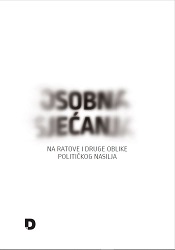
Mnogo je razloga zbog kojih pisati o Staroj Gradiški nije nimalo jednostavno, niti lagano. Kako je napisano u predgovoru knjige Stara Gradiška, povjesničara Vjekoslava Žugaja: „…iz jednostavnog razloga što sinonim Stare Gradiške nije njena historiografija u suhoparnome nizanju događaja po slijedu godine na tom hrvatskom mikro lokalitetu, nego ono što Stara Gradiška predstavlja u onom suptilnijem, sasvim određenom smislu. U svom određenju dugostoljetnog kazimata ta geografska lokacija i ime dobivaju značaj.“
More...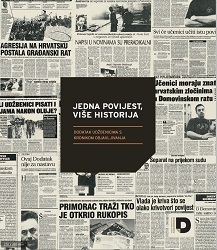
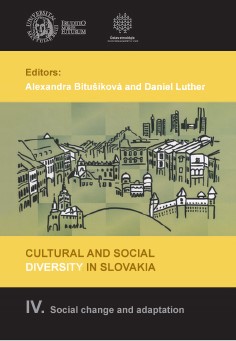
The social and political changes in Slovakia after 1989 opened many new challenges, tasks, and issues. One of the consequences of these changes was the fact that the public and expert discourse started to raise topics on the modern history of Slovakia - before taboo, overlooked, or ideologically interpreted by the Communist regime. A request and interest suddenly emerged to explore our own history without the dictate of ideology, independently and openly. The history topics which were previously taboo referred to the period of the wartime Slovak state (1939-1945) and its totalitarian regime, and the forms of the Holocaust in Slovakia. Historians and social scientists started to explore these topics from the perspective of their science disciplines. In order to contribute to a critical re-assessment of the ideologically burdened images of the past and to the overcoming of historic stereotypes surviving in our societies, the oral history method is primarily used in my ethnological research. It represents an appropriate tool for the capturing of subjective testimonies of experienced events at a certain historic period. Thanks to this method, it is possible to obtain an interpretation of historic events from the perspective of individuals who are part of the society. My research is based on the assumption that the affiliation of a witness to a certain social group or groups determines his/her testimony, and the memory processes depend not only on external stimuli, but also on the particular social context (Halbwachs 1980; Assman 1992; Ferencová - Nosková 2009: 21-31).
More...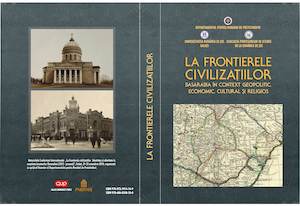
Parte integrantă a spaţiului geografic românesc, teritoriul dintre Prut şi Nistru a parcurs aceleaşi etape istorice pe care le‑a cunoscut întreaga evoluţie a românilor, din cele mai vechi timpuri şi până la începutul secolului al XIX‑lea, când a fost cotropit de Imperiul Rus. Acesta, profitând de conjunctura politico‑militară favorabilă determinată de „Criza orientală”, a ocupat Principatele Române şi „prin înşelăciune şi intimidare, a determinat Poarta otomană să recunoască încorporarea la Rusia a spaţiului românesc de la est de Prut, deşi turcii nu stăpâneau efectiv acest teritoriu şi nimic nu le dădea dreptul să facă această cesiune teritorială."
More...
Atunci când, arareori, istoriografia – fie că ne referim la cea românească postcomunistă, finlandeză sau occidentală – s-a oprit asupra cazului Finlandei şi al României în perioada celui de-al Doilea Război Mondial, aceasta a remarcat faptul că cele două state au fost victime ale Pactului Ribbentrop-Molotov, s-au văzut obligate la dureroase cesiuni teritoriale, motiv pentru care acestea au devenit „camarazi de arme” în Războiul din Răsărit (1941-1944).
More...